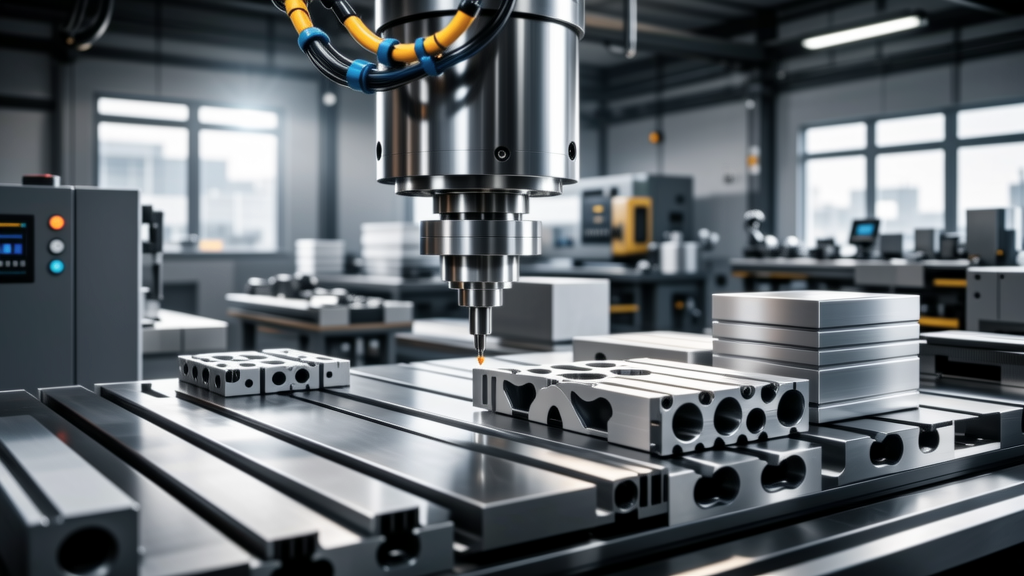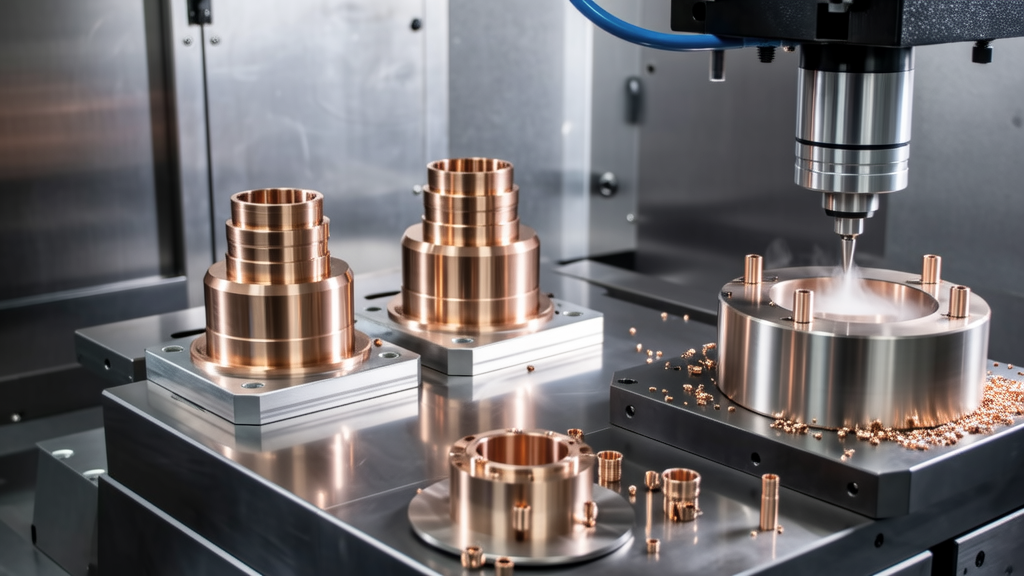When you’re diving into CNC machining, especially in Shenzhen, the material selection can feel overwhelming. You might find yourself asking, “What are the common materials, and how do I choose the right one for my project?” I’ve been there, and trust me, understanding the most popular materials can really help streamline your decisions and improve your outcomes.
Common Materials Used in CNC Machining
Aluminum
Let’s start with aluminum. This material is one of the most commonly used in CNC machining, often favored for its lightweight and excellent corrosion resistance. I remember a project where we needed to create custom brackets for an automotive client. By choosing aluminum, we managed to keep the weight down without compromising strength. Plus, it’s easy to machine, which saved us time.
Aluminum comes in various grades, with 6061 and 7075 being the most frequently used. Grade 6061 is great for a mix of good mechanical properties and weldability, while 7075 is often used when strength is a priority. If you’re looking for something similar for your project, I suggest considering which grade fits your needs best.
Stainless Steel
Next up is stainless steel, which is perfect for when you need durability and resistance to rust and wear. I once worked on a project that required making components for a medical device. Using stainless steel ensured that the parts could withstand the demanding environment they’d face.
Common grades in CNC machining include 304 and
Plastics
When you think CNC machining, don’t overlook plastics. They’re becoming increasingly popular due to their versatility and lower cost compared to metals. I once helped a client focus on prototype development that heavily relied on plastic CNC machining. It allowed quick iterations without breaking the bank.

Materials like ABS and Nylon are common in CNC machining. ABS is known for its toughness and impact resistance, while Nylon offers great strength and flexibility. If your project requires components that need to be lightweight yet durable, I suggest exploring plastics as a viable option.
Composites
In recent years, composites have found their way into CNC machining, particularly for specialized applications. These materials typically combine two or more distinct materials to create a new one with enhanced properties. For instance, carbon fiber composites are often chosen for aerospace or automotive components due to their high strength-to-weight ratio.
While composites can be more challenging to machine, the results can significantly benefit specific project needs. It’s worth considering if you’re seeking innovative solutions.
Conclusion
Each of these materials has its unique advantages and applications in CNC machining. While you may have preferences, I recommend evaluating your specific project requirements carefully. Look into each material’s properties, cost, and machinability. Exploring the strengths and weaknesses can help guide your decision-making process.
As you dive into CNC machining, especially in the dynamic market of Shenzhen, keeping an eye on these common materials will surely empower you to make informed choices that align with your production needs. If you’re looking for more details or specific guidance, feel free to reach out and share your project goals!

What is the best aluminum grade for CNC machining in Shenzhen?
When it comes to aluminum grades, 6061 and 7075 are usually the top picks for CNC machining. Grade 6061 is favored for its good mechanical properties and weldability, while 7075 is often chosen for high-strength applications. If you’re unsure, I suggest checking which grade best fits your project needs.
Remember, the cost and availability can vary, so do a bit of research on suppliers in the Shenzhen area before making a decision.
How does stainless steel compare to aluminum in CNC machining?
Stainless steel is generally tougher to machine compared to aluminum. While aluminum is lightweight and easier to handle, stainless steel offers great durability and corrosion resistance. If you’re making parts for demanding environments, stainless could be the way to go.
That said, machining stainless requires the right tools and settings, but the end results can be worth it, especially for high-stress applications.
What types of plastics are commonly used in CNC machining?
In CNC machining, ABS and Nylon are popular choices. ABS is great for its toughness and impact resistance, while Nylon provides excellent strength and flexibility. If your project requires lightweight yet durable parts, plastics can be a fantastic option.
I’ve seen clients successfully use these materials for prototypes, proving that plastics can be just as effective as metals in many cases.
Can you explain the benefits of using composites in CNC machining?
Composites, like carbon fiber, are increasingly used for specialized CNC machining applications. They are known for their high strength-to-weight ratio, which makes them ideal for industries like aerospace and automotive.
While they can be more challenging to machine, the result is often a lighter, stronger component. If you’re considering composites, ensure you’re equipped to handle the machining challenges they pose.



